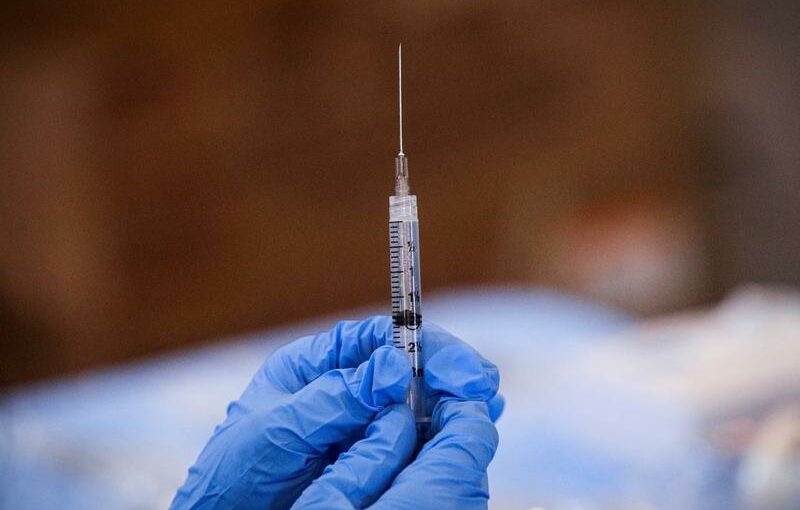WASHINGTON (Reuters) -President Joe Biden said on Wednesday his administration will require employees at nursing homes to be vaccinated against COVID-19 as a condition of the facilities participating in the Medicare and Medicaid government healthcare programs.
Biden made the announcement hours after the release of a study bit.ly/3mebUYT showing that the effectiveness of COVID-19 vaccines for residents of nursing homes and long-term care facilities, where residents are often elderly and frail, has dropped since the Delta variant became dominant in the United States.
Residents of nursing homes have been hard hit during the pandemic, with many facilities experiencing high death tolls – particularly early in the public health crisis. People living in nursing homes were among the first to be given shots after COVID-19 vaccines won U.S. government authorization last year.
But some nursing homes have not required staff members to be vaccinated against COVID-19 – and some employees have opted not to get the shots amid vaccine skepticism among some Americans.
“I’m using the power of the federal government as a payer of healthcare costs to insure we reduce those risks to our most vulnerable seniors. These steps are all about keeping people safe and out of harm’s way,” Biden said at the White House.
“If you visit, live or work in a nursing home, you should not be at a higher risk for contracting COVID from unvaccinated employees,” Biden added.
Medicare is the federal health insurance program for people 65 and older. Medicaid is a state-federal health insurance program for the poor. Many nursing homes are reliant on payments from these programs.
Biden said that more than 130,000 residents in U.S. nursing homes have died from COVID-19 and that vaccination rates among nursing home employees trail the rest of the country. Biden said studies show that having a highly vaccinated nursing home staff is associated with at least 30 percent fewer COVID-19 cases among residents.
The spread of the highly infectious Delta variant, which according to CDC data accounted last month for more than 80% of new U.S. infections, has complicated efforts to combat the pandemic in the United States and globally.
In the new study, researchers from the U.S. Centers for Disease Control and Prevention compared weekly data from 3,862 nursing homes and long-term care facilities spanning March 1 to May 9, before Delta became widespread, to data from 14,917 such facilities covering June 21 to Aug. 9, when the variant was responsible for the majority of new infections.
They found that efficacy of the two-dose vaccines from Pfizer/BioNTech and Moderna for preventing any coronavirus infection – mild or severe – dropped from 74.7% to 53.1%. Effectiveness estimates were similar for the Pfizer-BioNTech and Moderna vaccines, they said.
The study was published in the CDC’s Morbidity and Mortality Weekly Report (MMWR).
The findings were cited by federal health officials on Wednesday in their announcement that COVID-19 booster shots would be made widely available here to Americans beginning on Sept. 20, with protection from initial vaccination waning over time.
The first groups to receive those boosters will include nursing home residents and other elderly Americans, as well as people with weak immune systems, officials said.
In a second study bit.ly/3AS7Cub published in MMWR, New York State Department of Health officials found that by late July, 65% of New York adults had been fully vaccinated with two doses of the Pfizer/BioNTech or Moderna shots or one dose of the Johnson & Johnson shot.
Between early May and late July, the vaccines’ effectiveness for preventing new infections dropped from 91.7% to 79.8%, the study found. Vaccine efficacy at preventing hospitalization held steady, ranging from 91.9% to 95.3%, it found.
The effectiveness of the two-dose vaccines against hospitalization lasts at least six months, according to a separate study bit.ly/2Wa8kEm by researchers in 18 U.S. states who reviewed data from 3,089 hospitalized patients, including 1,194 with COVID-19.
Source: Read Full Article
